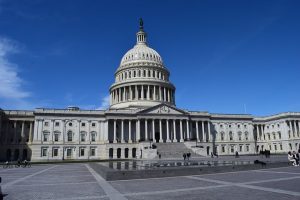While public policy has proven to help out education reform greatly, some people disagree and believe that other methods must be approached to fix our education inequality issue. These people tend to believe that the U.S public school system is broken and rather than use public policy to fix it, we just start anew. They believe that, “If the old system is broken, impervious to change, and politically dysfunctional, then focus on replacing it with something different,” like charter schools, school vouchers or other private schools (Petrilli, 2016). However, this does not always prove to be the best option because in many cases like Mississippi, “of the students who attend private schools in Mississippi, very few are black,” and this just shows that creating schools other than public doesn’t necessarily fix the race issue (Richard, 2013). Also, creating new charter schools would involve some public policy, showing that public policy is crucial for education reform. I believe that public policy is our best shot at reforming the U.S education system and making it more equal. Public policy for education can enforce laws and mandates that make cities and states have to integrate their urban and suburban schools together so that there is widespread diversity within the schools.
The longer we continue to allow states to keep their suburban schools segregated from their urban schools, the more damaging effects this stallment will have on the education of poor and minority students. If our government preaches that “a key tenet of the American Dream is that all citizens are entitled to equality of educational opportunity,” then they must make this a reality through the enactment of public policy that enforces the integration of suburban and urban schools (Heath & Mickelson, 1999). “The education rationale for school desegregation rests largely upon claims that it improves the access of minority students to the higher quality education generally available to white Americans and therefore improves [their] educational outcomes and life chances,” which is why as a nation, we need to use policy to make sure minority students are receiving equal educational opportunities to white people (Heath & Mickelson, 1999).
References:
Mickelson, R. A., & Heath, D. (1999). The Effects of Segregation on African American High School Seniors Academic Achievement. The Journal of Negro Education, 68(4), 566. doi:10.2307/2668155
Petrilli, M. J. (2016, April 18). Policy change is not the only path to school reform. Retrieved April 28, 2018.
Richard, A. (2013, April 26). Racial segregation continues to impact quality of education in Mississippi-and nationwide. Retrieved April 28, 2018, from http://hechingerreport.org/racial-segregation-continues-to-impact-quality-of-education-in-mississippi-and-nationwide/

